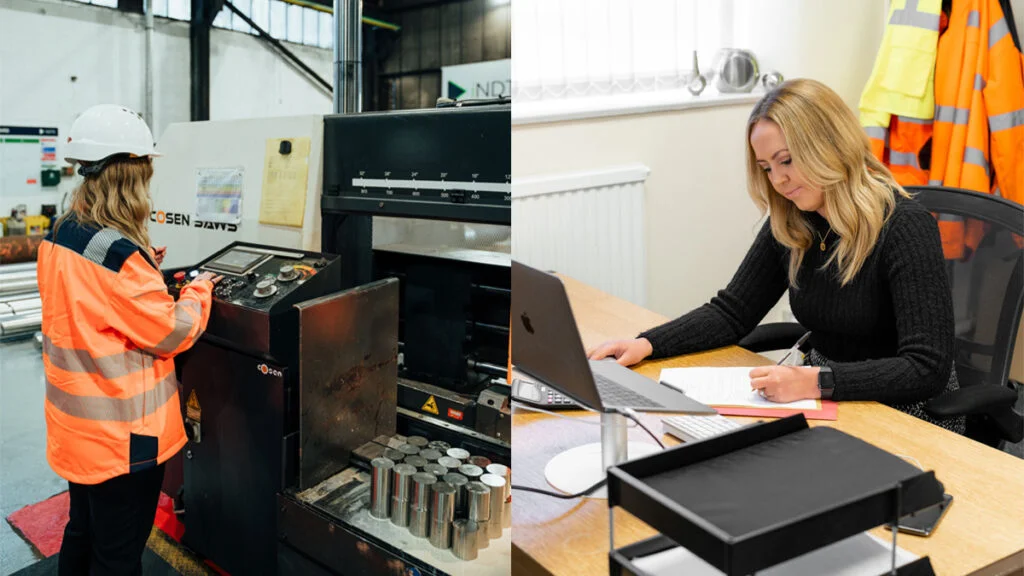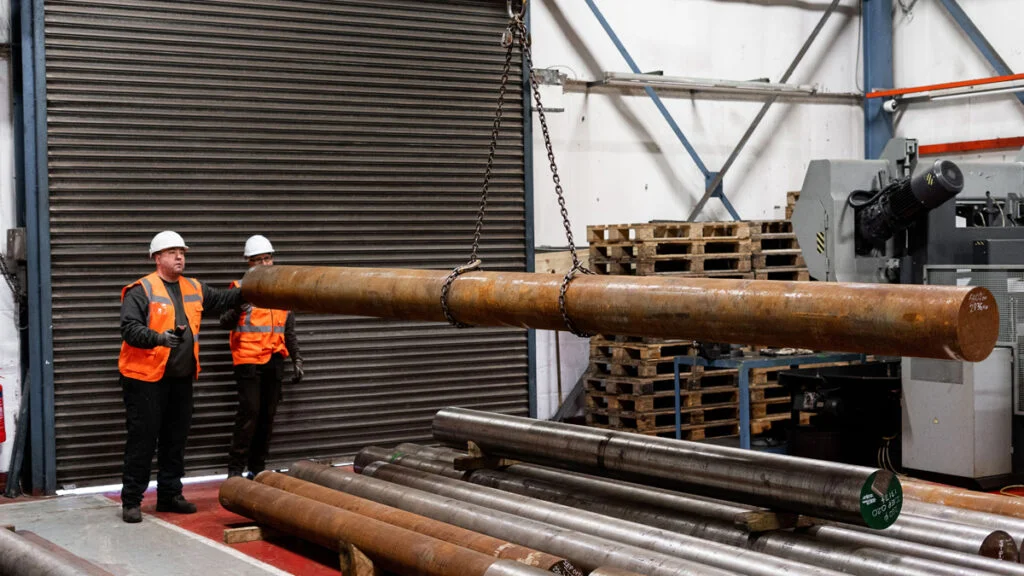
"I was described as a pesky wasp in a beer garden,” says Emma Parkinson, founder of International Energy Products. “It came from a client I had chased for seven years before winning their business. Until then, each call had the client ask me to call them in three months. Religiously, I did. I won their business seven years later – and it was sizable.”
In an industry dominated by conglomerated incumbents, Parkinson’s ambition sits above the scar tissue of being raised in a home that taunted poverty each month. Openly competitive and intent on becoming the best in the steel fabrication industry, she is on track to achieve her 160 per cent revenue growth target this year.
An initial indifference marked Emma Parkinson's entry into the steel industry. Starting in recruitment engineering, Barrat Steel employed her instead of the candidates she offered. “They saw something in me that I had not yet seen, so I took on the role. It was a low-level admin role, but I worked more hours, taking on tasks beyond my job description and eight-hour day.”

Her hands-on approach and eagerness to take on more responsibilities allowed her to learn rapidly, transforming her role from fulfilling duties to driving significant company improvements. We learn by doing: the more - and bigger - challenges you take on, the more failures you have. For an ambitious, conscientious mind, the faster you learn, integrate and raise your performance and capability. Parkinson saw inefficiencies in customer engagement and service in the steel product trade and commerce traffic.
Where are we today?
Today, International Energy Products specialises in producing and distributing high-quality steel alloys and fabricated metal components serving the energy, defence and aerospace industries. Its reputation is deliberately crafted and built against three pillars: innovation, precision engineering, and sustainability.
“We face several challenges,” says Parkinson. “Scaling operations in an industry that requires space, steel, skills and a modernised plant and equipment is not easy when funding is hard to access.”
Every deal won has been profitable. That profit can be seen in the growing asset register boasting a variety of advanced machinery in its manufacturing facility to support its cutting, processing, and fabrication operations.
“Retaining clients and winning new ones in a commoditised sector when you are a small player is done off the back of service. My team understands we are a solutions-first company, not a product provider," she says. "Every client won has been won off the back of our advice and insight on how that client can get a better product, price or solution than they originally sought.”
It all comes at a price of continuous investment into a state-of-the-art plant and equipment. This is a capital-hungry business – and capital is hard to come by.
Parkinson continues: “Our sector constantly changes. Aerospace dominates steel demand, with most airlines struggling to update their fleets.” Both Boeing and Airbus are experiencing strong demand for their aircraft, with a combined backlog of around 9,400 passenger aircraft through 2027.
Where are we three years from now?
“We will be a £30m revenue business by then,” Parkinson says plainly, with a plan to back it. “The achievement of this financial year of 160 per cent growth is on track and we have some closing end-user approvals from big clients. We will have fit-for-purpose premises in the second year, significantly increasing the space we need. It’s a requirement for scale in this industry. And we will expand our senior management team by offering progress and career pathways for current staff.”
As an idealist, Parkinson wants her team to progress, advance and become the best they can be in International Energy Products. She also wants Sheffield to re-energise its global reputation in the steel industry, characterised by its historical importance, innovative contributions, high-quality production and ongoing influence in advanced manufacturing and research. This reputation continues to be a source of pride and economic strength for the city.

Creating a vision that puts you under pressure to deliver it means stating it openly and publicly. An entrepreneur is someone who can see a problem, find a solution, build a business to service it, scale it, grow it and, with a big vision and enough ambition, dominate a few industry segments within the sector. In the steel fabrication sector, Parkinson is a real contender.
Where is it going right?
Successful entrepreneurial business owners embrace two criteria. First, idealism lets you believe you can create a better world by doing things differently. This is essential if you want to thrive, since doing what's already been done is the domain of your incumbent competitors.
Idealism is what innovates, creates and pushes the boundaries of standard practices that often-become complacency and retardation in any industry. Second, Pragmatists harness idealism and direct it into actionable steps aligned with available resources.
The two together let you start at the smallest, lowest step of an ever-expanding vision that gets fed by the success of each small step successfully actioned. Success breeds success.
Beyond the product and customer, to truly scale and dominate a few segments in your industry capital is needed. Sourcing capital requires a different focus and a different value proposition. The type of capital matters, too. Funding for tangible assets is more accessible. The asset itself stands as a security when the economy is booming.
Organic funding yields organic growth, something hard to tolerate for an ambitious idealist. Pragmatically, scaling growth to a significant next level often requires equity funding, which means new shareholders and limited control to scale and grow as you deem fit.
Steel is not a sexy industry despite it being a critical commodity any country needs to sustain and grow. Without steel, we are vulnerable.
Inventive funding options hold the key. Winning a big contract from a customer committed to serving innovation in the steel sector can unlock a source of funding from a neo-bank looking to grow clients in the mid-market business segment.
This would start a new approach to how Britain can regain some of its industrial capacity and, through that, independence and resilience to face a world that faces tectonic shifts and uncertainty.
Growth Engines showcases remarkable yet frequently under-recognised business owners who collectively form the basis of our economic engine and whose entrepreneurial fortitude creates a more inclusive and prosperous Britain. It shares their journey, highlighting hard-earned insights and lessons on overcoming challenges and driving business growth.
Its creator, Pavlo Phitidis, is a founder of Aurik, a business scale and growth execution platform for established business owners. He also speaks internationally and authored two books: Sweat, Scale Sell: Build Your Business into an Asset of Value and Reset, Rebuild, Reignite: Turning Crisis into Opportunity
Related and recommended

The technology is being used to redefine leadership, strategy and time management for modern bosses

Ebike entrepreneur Caroline Seton explains why start-ups should withstand external pressures to change course

Tom Crowley explains his philosophy for running successful high street food businesses

The travel tour entrepreneur’s business is thriving after the pandemic because she listened to customers

